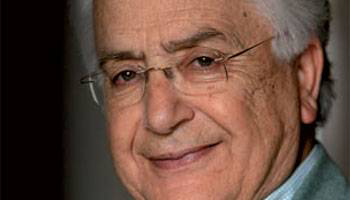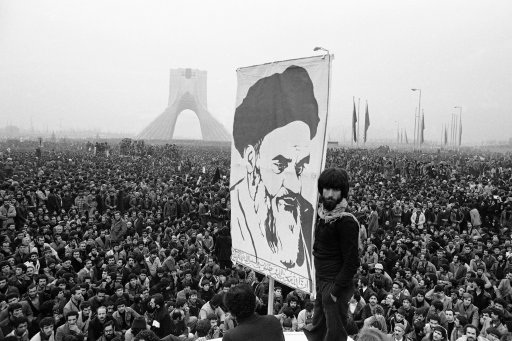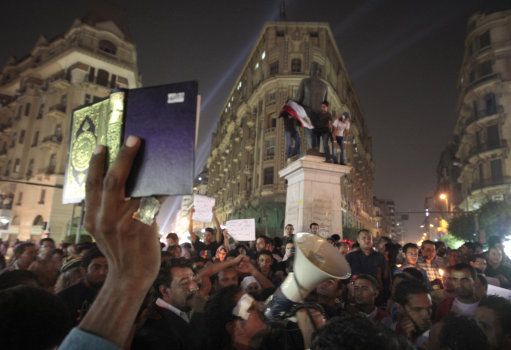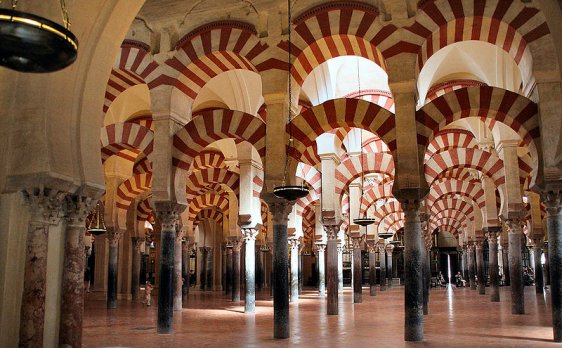
I would like first of all to pose this question: how does Muhammad Arkoun view Arab Islamic thought? What is the general picture he paints of it? This is the thing one has to pose first of all in order to grasp the general point of departure employed by this scholar in order to understand Arab Islamic thought and diagnose its crises, problems and historical impasses that it suffers from today.
BY HASHEM SALEH
FOR ARKOUN FOLLOWS the modern methodology that holds that one can only understand the present in the light of the past – and sometimes of the distant past too. The opposite is also true. One can understand the past in the light of the present and contemporary events. There is a dialectic or contested relationship between the two: the present sheds light on the past and the past illuminates the present.
He is also a supporter of the progressive-regressive school in historiography: one, that is, that goes back to the past in order to advance forward, and understands what went before in the light of what came after, and what came after in the light of what preceded it. There is no problem that does not have its roots deep in the distant past. Take, for example, the problem of sectarianism that threatens our countries at the present time in Iran, Lebanon, Syria, Egypt and the Arab Gulf with conflicts, divisions and so on. Consequently in order to diagnose these things properly we need to go back many centuries to discover their long buried roots. If deep archaeological excavation can shed light on its earliest roots then we can resolve them and remedy them, prevent their evil and put out the civil wars which they can provoke here and there. Our national unity cannot be achieved otherwise.
There is no problem that does not have its roots deep in the distant past
Take a look at how the English, the Germans, the French and other advanced nations have overcome this problem. See how they remedied the frightening divisions between Catholics and Protestants after having lived through savage civil wars and massacres and paid a huge price. The Catholic could not stand the Protestant and the same went vice versa. However, through the enlightenment of minds and the crystallisation of a new interpretation of the Christian faith they were able to overcome these sectarian feuds inherited from the distant past and embedded in the collective mindset. This problem now wields no more influence among them. Their sense of national unity has formed and embedded itself to such an extent that they can now no longer be destabilised by a sectarian problem. This is where the benefit of religious and philosophical enlightenment lies: in a new, enlightened understanding of religion. This is what we Arab Muslims painfully lack now.
Before getting into any details we can say that Arkoun divides up Arab intellectual history into a number of phases that are at the same time distinct and conjoined. The first phase, which established for the Arabs their thought and worldwide culture, naturally saw the spreading of what Arkoun called the ‘Qur’ānic event’, and what we more generally call the rise of Islam. This phase lasted for a period of 22 years, from the preaching of Muhammad as is well known (610 to 632). This is the first point of departure which forged the subsequent glory of the Arabs and enabled them to enter history after being clients and negligible elements in comparison to the Byzantine and Persian empires. But it charged them with a great religious message and impelled them with enthusiasm to conquer the world. Echoes of the Message resounded with astonishing speed in all four corners of the globe. In this resides the genius of the Prophet Muhammad whom some silly cartoons have attempted to denigrate. But how preposterous it is, for the Prophets are far exalted above these in status and grandeur! This very brief phase was enough to prime Arab history, give its best to it and leave it pregnant with potential.
After that the Arabs set out to conquer the world charged with this divine text, with this prophetic discourse that enabled them to work wonders. In this way was formed the classical Islamic Arab culture that lasted from the year 632 to about 1300 – that is up to the fall of Baghdad to the Mongols, the beginning of a period of decadence and the exit of the Arabs from history, an exit which in some ways has not been reversed to this day. This is the second of our historical phases. It constitutes for us the Golden Age, that is, the age of the Umayyads, the Abbasids, the Buwayhids, the Fatimids and the Andalusians. What follows this is a third phase which is the inverse of this, one which Arkoun terms the period of impoverishment and historical stagnation – the era of decadence. This period lasted from 1300 to 1800, five centuries in succession of a historical sleep, the sleep of the Ahl al-Kahf![1] It is this that we are unwittingly paying the high price for now. Why so? Because it was during this very period that Europe took over from us the banner of history on the other side of the Mediterranean Sea to form modernity, science and civilisation in our place or instead of us.
Our Renaissance was flimsy and nothing more than a short intermission
When our civilisation ended, theirs began. This is the way of the world: one day you are up and the next day you are down, you may have your day in the sun and yet still more days in darkness. The Arabs and Muslims had tired of their cultural beneficence and yielded to stagnation, decadence, closing in on themselves, repetition and regurgitation. One might say that they are still yielding to this to this day. Look at the grinding poverty of the Friday discourse in the mosques, how it amounts to no more than the repetition and regurgitation of the Middle Ages. The same could be said for school syllabuses, particularly those in the conservative states. Nevertheless they appear to be in a stage of development. Look at the domination of Salafist, Muslim Brotherhood movements in what has been termed the ‘Arab Spring ‘. In this period in particular (the period of our decadence and exit from history) great scientific, philosophical and political revolutions took place in Italy, England, the Netherlands, France, Germany and so on … all this happened whilst we were buried in a profound sleep insensitive to the tremendous inventions and developments taking place around us.
During this period appeared Copernicus, Galileo, Kepler, Descartes, Newton, John Locke, Hobbes, Voltaire, Diderot, Jean-Jacques Rousseau, Leibniz, Kant and Hegel. Three revolutions took place: the English, the American and above all the French Revolution. All this took place whilst the Arabs were asleep to history under the shadow of the worn-out Ottoman Empire that contributed not one jot to the fashioning of this seething modernity we are living in even today.
After this extended period of decadence we awoke once again to enter into the fourth phase, which Arkoun terms the period of ‘the Transient Renaissance’– despite the fact that it lasted a century and a half! I think that he is being unfair to it to a certain extent. According to his chronological categorisation it lasted from 1800 to 1940 or 1950. Why does he call it ‘transient’? Because it eventually aborted, in contradistinction to the European Renaissance which took place in the 16th century and has continued to grow uninterrupted to the present-day. Consequently our Renaissance was flimsy and, for all its beauty and the enthusiasm of its great exponents, was nothing more than a short intermission in a long history of decadence.
Modernist liberal thought will return to concentrate a real Arab Spring
Evidence for this is what followed directly afterwards and put paid to it at the same time, a period brimming with ideologies and all their shining slogans. This is the fifth phase of our history and one that may be divided into two parts: the part that witnessed the domination of nationalist, not to say jingoistic, discourse stuffed with all of its slogans under the shade of Nasserism and the Baʽath in particular.
This period lasted about 20 or 30 years, from 1940 to 1980. It was followed directly by the phase we are still living in now: the fundamentalist phase of a similarly dense ideological discourse with all its fevered slogans, only this time Islamist ones and not Arabist ones. This phase began with the launching of the Khomeinist revolution and its triumph in Iran, and then the launch of other fundamentalist movements here and there in its wake which never achieved power with the exception, perhaps, of Sudan. But it has recently taken power thanks to the Arab Spring in Tunisia and Egypt in particular. This period has been ongoing since 1979 even if some scholars see on the horizon some early inklings of a new, sixth phase: the post-fundamentalist phase. This might seem an odd thing to say at a time when the Muslim Brotherhood and the Salafists are sweeping to electoral victory in most Arab states and reaping the ripening fruits of the Arab Spring. But there are things that are happening behind the scenes and one should not be beguiled by surface appearances.
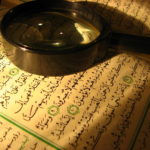
Suggested Reading
It is our opinion that after the fundamentalist phase exhausts itself in the reality of the practice of government for a while there will be a counter-reaction, after which modernist liberal thought will return to the arena to concentrate a real Arab Spring. This is the phase which the thought of Muhammad Arkoun is preparing for and working for by a radical dismantling of all inherited fundamentalist discourse. Arkoun’s moment has not yet come, but it will come, there is no doubt about that. For in the final analysis truth alone will prevail, in the final analysis Arabs and Muslims will re-enter into history by adopting enlightened, rationalist thought and divesting themselves of stagnant, fundamentalist thought, be it Sunni or Shīʽī thought, Muslim Brotherhood thought or Khomeinist thought. When that time comes there will be a pressing need for a new, different thinking. When that time comes Arkoun will reappear as some saviour or redeemer. Why is this so? Because he is engaged in an archaeological excavation into the deepest depths of the heritage.
Hence the importance of his famous project: the Critique of Islamic Thought, or the dismantling of locked theological enclosures. This means the dismantling of the very foundations of sectarianism. But he knows that we would not be able to pass the fundamentalist phase before passing through a baptism of fire. This is what the Iranian people have been living through for the past 30 years and what the Arab peoples are now doing thanks to the Arab Spring! It is not the actual Spring that one has been waiting for (some call it a Fundamentalist Autumn, not a Spring) but passing through it is obligatory in order for Arab peoples to get to the real Spring after 20 or maybe even 30 years to come.[2] Had not Arkoun passed away two years ago he would not have been surprised at all by these intifadas.
[1] The ‘People of the Cave’, from Qur’ān XVIII,9-26, which tells the story of the People of the Cave, monotheistic-minded worshippers in a pagan era who took refuge in a cave, fell asleep to awake 300 years later to a monotheistic world.
[2] One could say that it is a political spring more than it is a cultural spring, the promise derives its disguised, contradictory face that it bears today. On the one hand it is positive visit frees us from totalitarian dictatorial regimes which have drained the Arab peoples. But on the other hand these are replaced by theocratic, fundamentalist regimes which represent a return to the past instead of a progress forward. But the future is opened to all possibilities and the inter-reactions that are taking place in all of this will prepare the ground for a real Arab Spring in the future. What I mean by this is ‘the dawning of a brilliant sun’ as Hegel put it concerning the French Revolution, but which in this case will be intellectual and political the same time not only a popular, tactical, political one. So what is happening now in Tunisia, Egypt, Libya and elsewhere is something positive in spite of everything. For it has at least stirred the muddy waters and the stagnant pond. He has unleashed a historic dialectic which had become frozen under the inherited dictatorial regimes. This historical dialectic will subsequently come over fundamentalism and stagnant traditional thought in Islam. At that point Mohammed Arkoun’s thinking take on all of its dimensions as the only serious alternative to fundamentalism. This accounts for the fundamentalists’ fear of him, for they fear him more than any other since he speaks of Islam from the inside and not from the outside, as do many Arab intellectuals.
